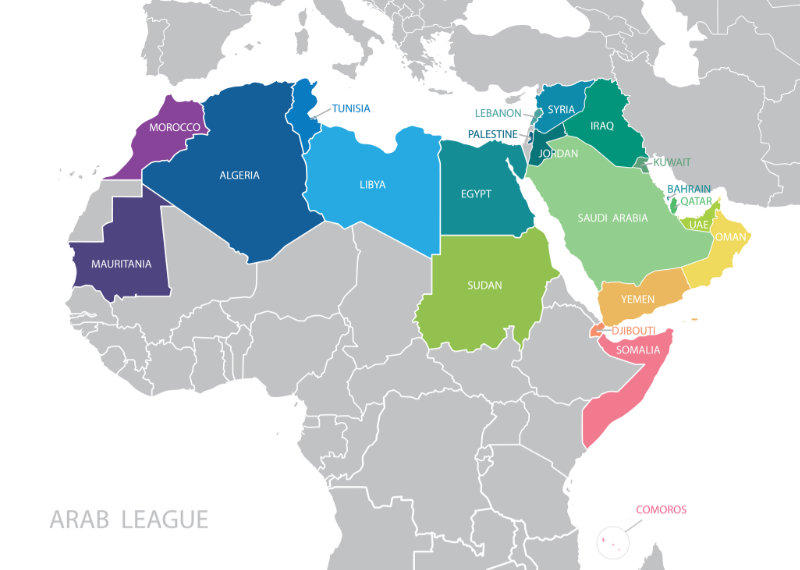The Russian President, Vladimir Putin, has invited all Heads of State and the Secretary General of the Arab League for the first Russia-Arab summit on October 15, according to a statement from the Kremlin.
Putin has stated that “I am confident that this meeting will contribute to the further strengthening of mutually beneficial, multifaceted cooperation between our countries and will help in finding ways to ensure peace, security, and stability in the Middle East and North Africa.”
The Arab League is a regional organisation of Arab states in the Middle East and parts of Africa, has 22 member states who have pledged, among others, to cooperate on political, economic and military affairs in the region. It includes Algeria, Bahrain, Comoros, Djibouti, Egypt, Iraq, Jordan, Kuwait, Lebanon, Libya, Mauritania, Morocco, Oman, Palestine, Qatar, Saudi Arabia, Somalia, Sudan, Syria, Tunisia, the United Arab Emirates, and Yemen. Collectively, these represent a total population of 462 million with a GDP (PPP) of US$8.3 trillion. It is headquartered in Cairo.

The Arab League was founded in 1945, and to date has not lived up to its real potential, with other regional blocs such as the Gulf Cooperation Council tending to take precedence. However, its unification of the Arab world and the league’s geographical reach are strategically very important. The region is going through changes, especially in Africa, where the withdrawal of European colonial troops has created some instability. Russia is already involved in providing security in the Sahel region, while there have been long standing problems in Libya, Palestine, Sudan and Syria that also threaten Jordan and the Lebanon.
In terms of trade development and investment, Russia has also been developing regional ties and has interests in multiple energy infrastructure projects. Several countries are also major buyers of Russia grains and fertilizers.
The move may also be to help counterbalance increasing US influence, with U.S. President Donald Trump having a successful visit to the Gulf region last week, during which Washington said it had secured several deals, including a US$600 billion commitment by Saudi Arabia to invest in the United States, and a US$142 billion in arms sales deal, an AI partnership with the United Arab Emirates, and meetings with the Syrian President to discuss security and trade possibilities.
Further Reading
The Islamic World and Business Relations with Russia

 Русский
Русский













